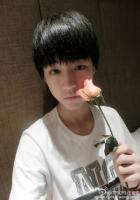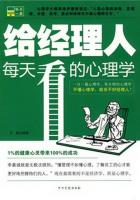The Uniform Crailey was not the only man in Rouen who had been saying to himself all day that each accustomed thing he did was done for the last time. Many of his comrades went about with "Farewell, old friend," in their hearts, not only for the people, but for the usual things of life and the actions of habit, now become unexpectedly dear and sweet to know or to perform. So Tom Vanrevel, relieved of his hot uniform, loose as to collar, wearing a big dressing-gown, and stretched in a chair, watched the sunset from the western window of the dusty office, where he had dreamed through many sun- sets in summers past, and now took his leave of this old habit of his in silence, with a long cigar, considering the chances largely against his ever seeing the sun go down behind the long wooden bridge at the foot of Main Street again.
The ruins of the warehouses had been removed, and the river was laid clear to his sight; it ran between brown banks like a river of rubies, and, at the wharf, the small evening steamboat, ugly and grim enough to behold from near by, lay pink and lovely in that broad glow, tooting imminent departure, although an hour might elapse before it would back into the current. The sun widened, clung briefly to the horizon, and dropped behind the low hills beyond the bottom lands; the stream grew purple, then took on a lustre of pearl as the stars came out, while rosy distances changed to misty blue; the chatter of the birds in the Main Street maples became quieter, and, through lessening little choruses of twittering, fell gradually to silence. And now the blue dusk crept on the town, and the corner drug-store window-lights threw mottled colors on the pavement.
>From the hall, outside the closed office-door, came the sound of quick, light footsteps; it was Crailey going out; but Tom only sighed to himself, and did not hail him. So these light footsteps of Crailey Gray echoed but a moment in the stairway and were heard no more.
A few moments later a tall figure, dressed from neck to heels in a gray cloak crossed the mottled lights, and disappeared into Carewe Street.
This cloaked person wore on his head a soldier's cap, and Tom, not recognizing him surely, vaguely wondered why Tappingham Marsh chose to muffle himself so warmly on a evening. He noted the quick, alert tread as like Marsh's usual gait, but no suspicion crossed his mind that the figure might be that of partner.
A rocket went up from the Rouen House, then another, followed by a salvo of anvils and rackety discharge of small-arms; the beginning a noble display of fireworks in celebration of prospective victories of the United States and utter discomfiture of the Mexicans when the Rouen Volunteers should reach the seat of war, an Exhibition of patriotism which brought little pleasure to Mr. Vanrevel.
But over the noise of the street he heard his own name shouted from the stairway, and almost instantly a violent knocking assailed the door. Be- fore he could bid the visitor enter, the door was flung open by a stout and excited colored woman, who, at sight of him, threw up her hands in tremulous thanksgiving. It was the vain Mamie.
She sank into a chair, and rocked herself to and fro, gasping to regain her lost breath. "Bless de good God `Imighty you am' gone out!" she panted. "I run an' I run, an' I come so fas' I got stitches in de side f'um head to heel!"
Tom brought her a glass of water, which she drank between gasps.
"I nevah run so befo' enduin' my livin' days," she asserted. "You knows me, who I am an' whum I cum f'um, nigh's well's I knows who you is, I reckon, Maje' Vanrevel?"
"Yes, yes, I know. Will you tell me who sent you?"
"Miz Tanberry, suh, dat who sended me, an' in a venomous hurry she done de same!"
"Yes. Why? Does she want me?"
Mamie emitted a screech. "`Deed she mos' everlas'in'ly does not! Dat de ve'y exackindes' livin' t'ing she does not want!"
"Then what is it, Mamie?"
"Lemme git my bref, suh, an' you hole yo'ne whiles I tell you! She say to me, she say: `Is you `quainted Maje' Vanrevel, Mamie?' s' she, an' I up'n' ansuh, `Not to speak wid, but dey ain; none on `em I don' knows by sight, an' none betterer dan him,' I say. Den she say, she say: `You run all de way an' fin' dat young man,' she say, s' she, `an' if you don' git dah fo' he leave, er don' stop him on de way, den God `imighty fergive you!' she say. `But you tell him f'um Jane Tanberry not to come nigh dis house or dis gyahden dis night! Tell him dat Jane Tanberry warn him he mus' keep outer Carewe's way ontel he safe on de boat to-morrer. Tell him Jane Tanberry beg him to stay in he own room dis night, an' dat she beg it on her bented knees!' An' dis she say to me when I tole her what Nelson see in dat house dis evenin'. An' hyuh I is, an' hyuh yew is, an' de blessed Jesus be thank', you ir hyuh!"
Tom regarded her with a grave attention. "What made Mrs. Tanberry think I might be coming there to-night?"
"Dey's cur'ous goin's-on in dat house, suh! De young lady she ain' like herself; all de day long she wanduh up an' down an' roun' about. Miz Tanberry are a mighty guessifying woman, an' de minute I tell her what Nelse see, she s'pec' you a-comin' an' dat de boss mos' pintedly preparin' fo' it!"
"Can you make it a little clearer for me, Mamie? I'm afraid I don't understand."















